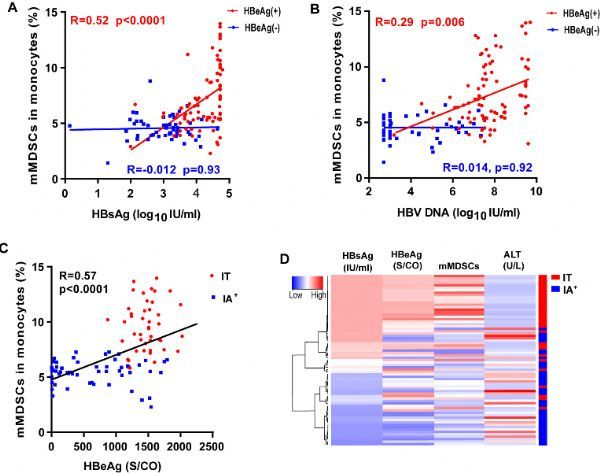A new study recently published in PLOS Pathogens reveals how hepatitis B virus proteins stimulate the proliferation of immune cells that can destroy antiviral responses by Haitao Guo and Fudan University of Indiana University School of Medicine. The University's Bin Wang, Jiming Zhang and their colleagues worked together. These findings may explain how hepatitis B virus (HBV) establishes and maintains chronic infections and may help develop new therapeutic strategies.

Image source: PLOS pathogens
HBV is a blood-borne pathogen that infects approximately 350 million people worldwide for a long time, with more than 780,000 patients dying from HBV-related liver disease each year. Chronic HBV infection is associated with impaired virus-specific T cell responses. Bone marrow-derived suppressor cells (MDSCs) are immune cells that play an important role in inhibiting antiviral T cell responses. In addition, hepatitis B e antigen (HBeAg), a hepatitis B virus protein, may be a strategy for the establishment of persistent infections, but the mechanism is unclear.
In this new study, the researchers studied the mechanisms by which MDSCs proliferate and suppress T-cell responses in persistent HBV infection. The researchers analyzed the circulating frequency of MDSCs in 164 patients with chronic HBV infection and 70 healthy donors. They found that the frequency of MDSCs circulating in HBeAg-positive patients was higher than in HBeAg-negative patients. In addition, HBeAg can induce the expansion of MDSCs by up-regulating the indole-2,3-dioxygenase (IDO) molecule, which plays a key role in inhibiting T cell proliferation.
The authors believe that this finding suggests a novel mechanism by which HBeAg induces MDSC expansion through the IDO pathway to impair T cell function and maintain persistent HBV infection. Therefore, the HBeAg-MDSC-IDO pathway may be an immunotherapeutic target for chronic hepatitis B.
The authors added: "HBV may disrupt the host immune system to maintain persistent infection, and HBeAg is one of the culprit. Breaking the link between HBeAg-IDO-MDSC may be the development of new HBV therapy for HBeAg-positive patients Come hope."
Reference material: Yang F, Yu X, Zhou C, Mao R, Zhu M, Zhu H, et al. (2019) Hepatitis B e antigen induces the expansion of monocytic myeloid-derived suppressor cells to dampen T-cell function in chronic hepatitis B virus infection. PLoS Pathog 15(4): e1007690. doi.org/10.1371/journal.ppat.1007690
Food Grade Gelatin,Food Additives Gelatin,Bovine Gelatin Powder,Edible Gelatin Powder
Hebei Haodong Biological Technology Co.,Ltd. , https://www.hdgelatin.com